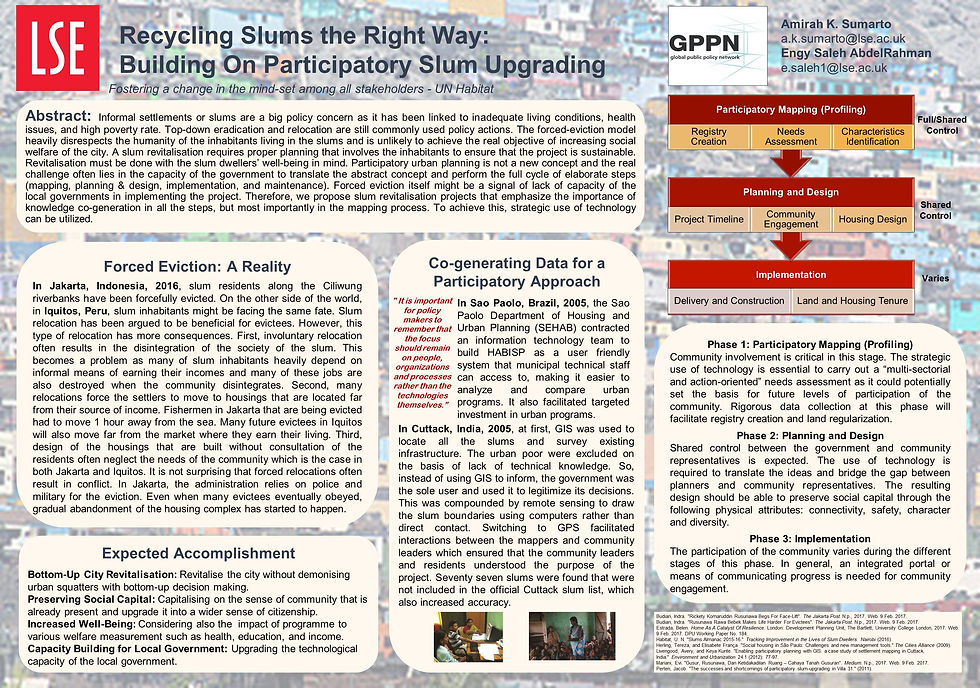My reflections on the LSE-SIPA MPA dual degree
- Laura Muller, LSE IPA Blog
- Nov 17, 2016
- 2 min read

In this blog post, Laura Muller explains her motivations for pursuing a dual-degree Master of Public Administration from the London School of Economics and Columbia’s School of International Public Affairs (SIPA), New York, with a concentration at SIPA in International Finance. Laura’s professional background is in Finance, having worked in Goldman Sachs (Wealth Management), J.P. Morgan (Emerging Markets) and Morgan Stanley (2016 Global Sustainable Finance Summer Fellow). She is interested in finance as a force for positive change, whilst unlocking value for investors.
Why did you decide to pursue a Master of Public Administration (MPA)?
The MPA is one of the few graduate degrees where a student can really cater the degree to their interests. An MPA has the potential of becoming a hybrid degree across a variety of disciplines such as Economics, Finance, Politics, and Urban Planning etc. I strongly believed the MPA was the most suitable degree for me to explore how the private sector, namely finance, could drive positive social change.
Why did you pursue a dual-degree between the London School of Economics with Columbia’s School of international Public Affairs?
The LSE-SIPA dual-degree strongly influenced my decision to return to graduate school. The MPA is a diverse, international and highly technical degree with a core focus on both domestic and international policy. I felt the MPA dual-degree maximised my studies, as I experienced two different countries and two prestigious and established institutions. LSE provided a very solid grounding in Economics with a heavy focus on academic literature and quantitative analysis. SIPA provided a wide variety of classes and exposure to topics relevant to an MPA student (e.g. Central Banking, Gender Studies, Cyber Security, War and Peace studies). In my opinion, the technical skillset built at LSE combined with an exposure to multiple MPA focussed specialities at SIPA was an invaluable learning experience...
Originally published by the LSE IPA Blog

























Comments